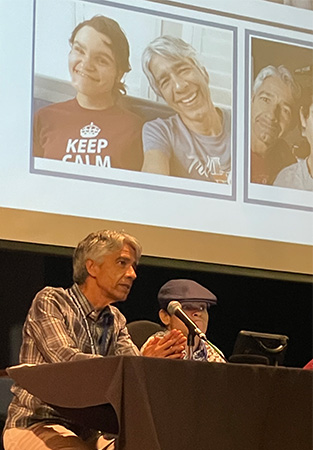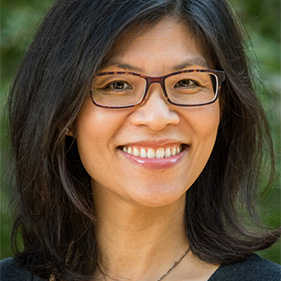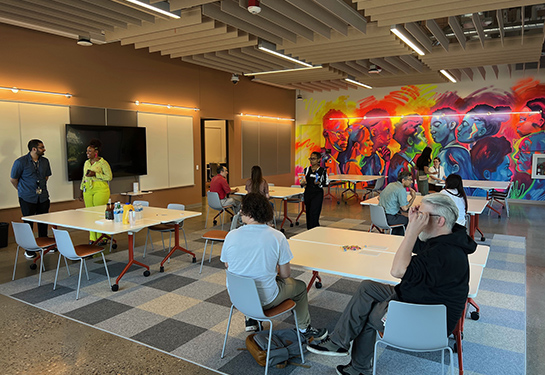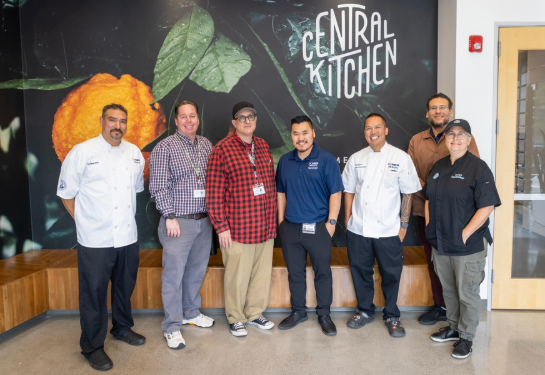First hybrid MIND Summer Institute on Neurodevelopmental Disabilities a success
Theme of inclusion raised critical issues facing community
Inclusion was the focus of the UC Davis MIND Institute’s successful 2023 MIND Summer Institute on Neurodevelopmental Disabilities last month. More than 250 people attended the event, either in person or online. Over half of them were caregivers for people with neurodevelopmental disabilities such as autism or fragile X syndrome.
Though the Summer Institute has been held for more than two decades, this was the first-ever hybrid event. It was held both virtually and at Hiram Johnson High School in Sacramento and was planned by the Center for Excellence in Developmental Disabilities (CEDD) at the MIND Institute.

“Being in person was great! The energy from the participants and the positive feedback about the event was so encouraging to hear,” said Amber Fitzgerald, co-coordinator for Summer Institute and a MIND Institute trainer and program manager. “It was wonderful to share resources, research advances and best practices with the community.”
The event theme was “Inclusion and Belonging: Powerful Discussions to Engage our Community.” It featured speakers, panel discussions and small group sessions, all focused on inclusion for people with neurodevelopmental disabilities in health care, education, employment and more. Spanish translation was offered for both in person and online participants.
This year we had people with various disabilities such as cerebral palsy, intellectual disabilities and complex medical conditions as well as their family members. Hearing their stories of inclusion in schools, jobs, health care settings and more and the challenges they faced and overcame was eye-opening, frustrating, sometimes heartbreaking, and truly inspiring.” —Kelly Heung, event co-coordinator and program manager, UC Davis MIND Institute
Sharing resources and lived experiences
“Every year, the highlight for me is our panel of speakers who have direct experience with disabilities,” said Kelly Heung, MIND Institute program manager and co-coordinator for Summer Institute. “This year we had people with various disabilities such as cerebral palsy, intellectual disabilities and complex medical conditions, as well as their family members. Hearing their stories of inclusion in schools, jobs, health care settings and more and the challenges they faced and overcame was eye-opening, frustrating, sometimes heartbreaking, and truly inspiring.”

Two of those panel members were Dave Perez and his adult son Sam, who has complex medical needs. Sam is non-verbal and sometimes uses a wheelchair.
“Our mission is to break through assumptions, stereotypes and hesitations that create barriers to understanding and communication with individuals with disabilities,” Dave Perez said. “I also got to hear messages from others who have unique perspectives that further expand my understanding of how best to navigate the complexities of very diverse communication partners.”
During the panel, Perez noted that he often sees people who are unfamiliar with Sam talk past or around him, rather than engaging him directly. Perez says he and Sam’s care team work to redirect the communication to Sam, which helps to include him in the conversation.
This year organizers added a new element that built on that concept: small group collaborative discussions on specific topics.
“Many participants shared how much they appreciated the opportunity to connect and learn from one another,” Fitzgerald said.
The event also featured a keynote address from Amy Hewitt, director of the Institute on Community Integration and director of the Research and Training Center on Community Living at the University of Minnesota. Hewitt addressed important aspects of inclusion throughout the lifespan.
Plans will get underway for next year’s event soon.
“We work with a planning committee comprised of people with disabilities and family members, professionals from community agencies supporting those with disabilities and staff members from the MIND Institute’s Center for Excellence in Developmental Disabilities,” Heung said. “There is much expertise on the team, and I look forward to planning another insightful and educational event in 2024.”
The UC Davis MIND Institute in Sacramento, Calif. is a unique, interdisciplinary research, clinical, and education center committed to deepening scientific understanding of autism and other neurodevelopmental conditions. It is a highly collaborative center, bringing together families, researchers, clinicians, community leaders and volunteers with the common goal of developing more personalized, equitable, and scientifically proven systems of support and intervention. The institute has major research efforts in autism, fragile X syndrome, chromosome 22q11.2 deletion syndrome, attention-deficit/hyperactivity disorder (ADHD) and Down syndrome. More information about the institute and its Distinguished Lecturer Series, including previous presentations in this series, is available on the Web at mindinstitute.ucdavis.edu.




